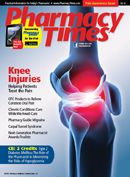Publication
Article
Pharmacy Times
RESPY Award
Tina Patel is committed to developing public health initiatives that meet the needs of underserved patients.
RESPy winner Tina Patel is committed to developing public health initiatives that include meeting the clinical pharmacy needs of underserved patients. Tina Patel, a PharmD/Master of Public Health (MPH) candidate at the University of Southern California (USC), will graduate in 2012 with a dual degree that will help her improve health care opportunities for underserved patients.
Patel has been interested in uniting pharmacy and public health since her first semester at USC. Patel has participated in numerous health fairs and clinics, including the Weingart Center Smoking Cessation Program, a 10-week program during which she provided homeless individuals with nicotine replacement therapy and cognitive behavioral therapy to help them quit smoking.
Patel’s greatest achievement at the USC School of Pharmacy has been cofounding and codirecting the PharmSC Clinic, the first student-run free clinic in the school’s history. Created in response to the needs of the local population, the clinic provides health care screenings and patient education, as well as medication reviews, Medicare Part D information sessions, medical clinic referrals, and bilingual patient handouts. Patel has been instrumental both in developing the services of the clinic and in gathering pharmacy student volunteers.
As September winner of the Walmart/ Pharmacy Times RESPy award, Patel represents one of the program’s key components: demonstration of a high level of professional and public health-related activities outside of the classroom. Pharmacy Times asked Patel about the PharmSC Clinic, her thoughts on professional associations, and the patient who helped her realize that she was meant to be a pharmacist.
Q: Why did you decide to become a pharmacist?
A: For over a decade, my father has owned a community pharmacy. I still remember those late nights growing up having intense discussions about different medications and legislative issues pertaining to pharmacy. It was fascinating to learn how many different roles a pharmacist has the opportunity to take.
Q: What has been your most rewarding extracurricular activity?
A: Cofounding the PharmSC Clinic has been my most rewarding extracurricular activity. It has been almost 2 years since the idea was first conceived. It was the most challenging project to initiate, but the most rewarding to execute. To date, over 100 patients have been seen at the clinic, many of whom have been screened, referred, and counseled for chronic conditions. Seeing the trust that the patients have in my profession reinforces my motivation to become a pharmacist.
Q: Was there a moment when you knew pharmacy was right for you?
A: Within the first month of the opening of the PharmSC Clinic, the clinic had its first return patient. We had referred him to a physician because he had significantly high fasting blood glucose levels on multiple occasions and needed to obtain medical therapy immediately. Two weeks after the patient saw a physician, he returned to the clinic for a follow-up visit. I had helped detect his uncontrolled diabetes and helped him get the medical attention he needed in order to manage his diabetes—that rewarding moment made me realize that pharmacy was the right profession for me.
Q: How would you say you have helped advance the profession of pharmacy?
A: My professional activities have focused on increasing access to primary and secondary preventative services—from health fairs to free clinics to legislative movements. As a result of my interest in these activities and public health, our goal for the PharmSC Clinic was to target a population that was underserved. The PharmSC Clinic provides patients with one-on-one attention by giving screenings, counseling, and continuous follow-ups.
Q: Do you think it is important for pharmacists to belong to professional associations?
A: Being an active member of national, statewide, and local associations is important to understanding the state of pharmacy. The members of professional pharmacy associations advocate for the profession and translate our position regarding patient care into legislation. As students, being involved in these organizations helps us understand the past, present, and future directions of pharmacy. PT
Tina Patel The RESPy (Respect, Excellence, and Service in Pharmacy) Award is presented to the student who has made a difference in his or her community by demonstrating excellence in pharmaceutical care.







